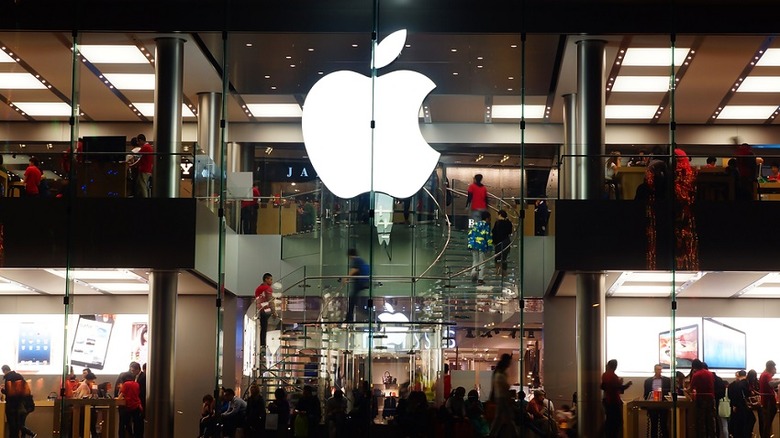Not Everyone Is A Fan Of Apple's Recycling Program
Perhaps more so than any other large-scale tech company, Apple prides itself for its commitment to the environment and for its ongoing efforts to "leave the world better than we found it." Earlier this week, with Earth Day on the horizon, Apple released its 2017 Environmental Responsibility Report and signaled its plan to eventually stop mining the earth for materials.
"It sounds crazy, but we're working on it," Apple's report reads in part. "We're going deeper to pioneer a closed-loop supply chain, where products are made using only renewable resources or recycled material to reduce the need to mine materials from the earth. That means continuing to invest in ways to recover materials from our products—like Liam, our line of disassembly robots—and encouraging our customers to return products through Apple Renew, our recycling program."
Incidentally, Apple introduced its Liam robot last year when it rolled out the iPhone SE, a video of which can be seen below.
Now recycling old products is a great way to harvest materials, but some folks are claiming that the rules governing what Apple's recycling partners can and can't do with old machines could be far more environmentally friendly.
According to a report from Vice, Apple's recycling partners are subject to contracts which prevent them from reusing, reselling or harvesting parts from older iPhones and MacBooks. Instead, piles of old Apple products are shredded into tiny sized pieces whereupon similar metals are grouped together and, per Apple, are then used "for production stock in new products."
It's arguably a bit nit-picky, but some folks feel that Apple can do better in this regard.
Jason Koebler of Vice writes:
Kyle Wiens, the CEO of iFixit, notes that recycling "should be a last option" because unrecyclable rare earth metals are completely lost and melted down commodities are less valuable and of generally of a lower quality than freshly mined ones. Repair and reuse are much better ways to extend the value of the original mined materials.
To be clear, Apple's practices are often against the wishes of the recycling companies themselves, who don't like to shred products that are still valuable. In a weird twist of fate, I visited ECS Refining before I knew that it did recycling for Apple. While I was there, I watched workers crowbar and crack open recent-model MacBook Pro Retinas—worth hundreds of dollars even when they're completely broken—to be scrapped into their base materials.
I'm not sure it's fair to call Apple out in this regard but it's an interesting point of view to consider nonetheless. The main problem with this critique, I think, is that it's easy to nitpick about what Apple can do better while completely ignoring the industry-leading measures Apple has made with respect to environmental responsibility over the last few years.
